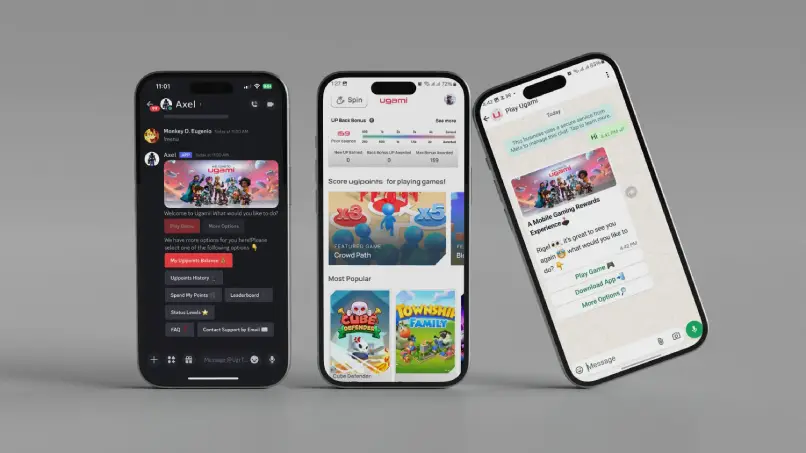How play to earn rewards can enhance your gaming experience and profits
Wiki Article
Why Play-to-Earn Rewards Are Altering the Method You Play and Gain
The development of play-to-earn versions indicates a significant change in the video gaming landscape, inviting gamers to discover not just the entertainment worth of games but likewise their prospective as income-generating platforms. Understanding these characteristics raises pertinent questions regarding the future of video gaming and the implications for both gamers and programmers alike.Introduction of Play-to-Earn Models
Recently, the pc gaming market has actually observed a considerable transformation with the emergence of play-to-earn designs, essentially altering how players engage with electronic settings. This ingenious strategy allows gamers to gain concrete rewards with their in-game tasks, developing a change from typical gaming standards where pleasure and competition were the key inspirations.Play-to-earn designs leverage blockchain innovation and non-fungible symbols (NFTs) to supply players with ownership of in-game possessions, which can be traded or cost real-world currency. As a result, gamers are incentivized to spend time and initiative right into games, fostering a feeling of company and monetary chance. play to earn rewards. This change has actually drawn in a diverse player base, including those who may have previously checked out gaming as a purely leisure task
A number of systems have actually emerged, showcasing successful applications of this design, such as Axie Infinity and Decentraland. These platforms have not only created substantial profits yet also triggered discussions around the sustainability and principles of such economic systems. As play-to-earn versions remain to evolve, they guarantee to redefine the relationship in between gamers, developers, and the wider electronic economic climate, leading the way for a new age in pc gaming.
Advantages for Gamers
As players involve with play-to-earn designs, they open a variety of advantages that prolong past plain entertainment. Among one of the most substantial advantages is the capacity for economic incentives. Unlike traditional video gaming, where players invest time and money without substantial returns, play-to-earn systems allow gamers to make copyright or in-game assets that can be converted to real-world worth. This economic reward not just enhances involvement but additionally promotes a feeling of possession over the gaming experience.Furthermore, play-to-earn models promote community building amongst gamers. Gamers often team up to attain common goals, thus growing social connections that improve the total experience. This feeling of community can cause participating gameplay, where gamers share methods and resources, improving both individual and team achievements.
Additionally, these models can democratize accessibility to gaming by enabling players from diverse economic histories to benefit monetarily. By joining play-to-earn communities, individuals can acquire abilities and expertise concerning blockchain modern technology, further broadening their career opportunities in the blossoming digital economy. Ultimately, the advantages for gamers expand well beyond gameplay, influencing their social, financial, and educational landscapes positively.
Difficulties in the Community
While the play-to-earn ecological community offers significant possibilities, it is not without its difficulties. Variations in worth can discourage possible gamers who look for secure income streams.An additional obstacle is the threat of scams and illegal schemes that can torment the community. Players might come across deceitful platforms promising high benefits yet inevitably resulting in economic loss. Ensuring count on and safety is crucial for the long-term practicality of play-to-earn designs.
Additionally, the ecological impact of blockchain gaming can not be neglected. The energy usage related to mining and deal handling increases honest inquiries concerning sustainability. Video game programmers have to locate an equilibrium in between satisfying gamers and lessening environmental impacts.
Finally, the regulative landscape is still developing, positioning potential risks for developers and gamers alike. Uncertain lawful frameworks can hinder development and limit the development of play-to-earn ecological communities. Resolving these obstacles is necessary for recognizing the complete possibility of this transformative video gaming paradigm.
The Role of Blockchain Modern Technology
Blockchain innovation offers as the foundation of the play-to-earn ecological community, resolving numerous of the challenges formerly laid out. By using decentralized ledgers, blockchain ensures openness and safety in deals. Players can confidently gain and trade in-game possessions, knowing that ownership is proven and not subject to manipulation.
Tokenization of possessions plays an essential duty, giving gamers true possession of their in-game items, which can be gotten, sold, or traded on different industries. This motivates a vivid additional market, where gamers can monetize their skills and time invested in the video game.
Furthermore, blockchain modern technology enables interoperability between various games and platforms, permitting gamers to carry their properties throughout various ecological communities. This flexibility not only boosts user experience but also promotes a much more comprehensive gaming atmosphere, eventually improving the landscape of gaming more and earning.
Future Trends in Video Gaming
The pc gaming sector is on the brink of a transformative development, driven by arising technologies and shifting player expectations. As play-to-earn designs gain grip, gamers are significantly seeking immersive experiences that blend home entertainment with concrete incentives. This change is motivating developers to innovate, concentrating on creating engaging gameplay that fosters neighborhood and interaction.One noteworthy pattern is the combination of online truth (VIRTUAL REALITY) and increased truth (AR), improving the video gaming experience by supplying much deeper immersion and interactive atmospheres. Furthermore, improvements in expert system are allowing much more advanced non-player characters (NPCs) and adaptive gameplay, customizing experiences to specific gamer preferences.

Conclusion
In conclusion, the play-to-earn version is dramatically changing the video gaming webpage landscape by enabling gamers to obtain real-world value from their in-game activities. This standard shift not only boosts player engagement and financial investment however also elevates obstacles that should be addressed to make certain sustainability within the environment. As blockchain innovation remains to assist in ownership of electronic properties, the future of video gaming promises more advancement and opportunities for gamers across varied backgrounds.Report this wiki page